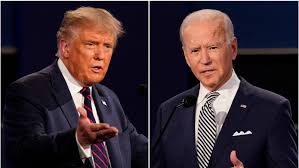World
WHO approves Indian meningitis vaccine for African infants

Washington: The World Health Organization (WHO) has opened the door to routine immunization of infants in sub-Saharan Africa by approving a vaccine manufactured by Pune-based Serum Institute of India Ltd (SIIL) that has all but got rid of the deadly meningitis epidemics.
In the four years since its introduction in Africa, MenAfriVac vaccine, which is both innovative and affordable, has had an immediate and dramatic impact in breaking the cycle of meningitis A epidemics.
“Developing the MenAfriVac vaccine fit exactly Serum’s ingrained philosophy of bringing down prices of vaccines so that underprivileged children of the world are protected,” said Cyrus Poonawalla, CEO of SIIL, in a statement.
“We at Serum Institute are extremely proud of being part of an international partnership that brought an end to a public health issue that has been plaguing sub-Saharan Africa for more than a century,” he added.
The announcement about the WHO approval came from the Meningitis Vaccine Project (MVP) – a partnership between the global health non-profit organisation PATH, WHO and Serum Institute of India Ltd (SIIL), which manufactures the MenAfriVac vaccine.
In 2004, MVP partnered with SIIL to develop an affordable, tailor-made vaccine for use against meningitis A in sub-Saharan Africa.
MenAfriVac was developed in record time at less than one tenth the cost of a typical new vaccine.
Since campaigns started in 2010, MenAfriVac has been administered to over 215 million people in 15 countries of the African meningitis belt: Benin, Burkina Faso, Cameroon, Chad, Cote d;Ivoire, Ethiopia, Ghana, Mali, Niger, Mauritania, Nigeria, Senegal, Sudan, Togo and The Gambia.
“Initial mass vaccination campaigns with MenAfriVac have been highly effective in reducing the number of meningitis A cases,” said Marie-Pierre Preziosi, director of the MVP.
The WHO decision means that the new, five microgram dose of the meningitis A vaccine meets international standards of quality, safety, and efficacy and can, therefore, be administered to children younger than one year of age in Africa.
MenAfriVac had previously been authorised for use in children and young adults, aged 1-29 years.
“We are more than halfway through with introducing the vaccine in meningitis-belt countries and the first introductions have been a stunning success,” said Jean-Marie Okwo-Bele, director of the WHO department of immunization, vaccines and biologicals.
“Elimination of meningitis epidemics will require meningitis belt countries’ political commitment to complete the mass campaigns and introduce the vaccine in the ‘Expanded Programme on Immunization’. Then and only then will we win the battle against meningitis,” he added.
World
Lockdowns in China Force Urban Communities to Defy Censorship and Vent Frustration Online

Shanghai’s rich middle class is leading a wave of online dissent over the strict and prolonged lockdowns imposed in various parts of the country. Chinese internet censorship is struggling as patience is wearing thin in many urban centers, coming up with creative forms of online protests.
Social Media Posts Revealing Lockdown Tension in Shanghai
Drawn-out lockdowns are nothing new in China as authorities insist with the nation’s zero-Covid policy since the start of the pandemic. Currently over This time around, however, metropolitan areas like Shanghai are increasingly difficult to keep quiet, given that its more than 25 million residents have seen weeks of total isolation along with food shortages and many other service interruptions.
Dozens of towns and reportedly over 300 million Chinese citizens have been affected by lockdowns of different severity. As expected, urban netizens have been most outspoken over their difficulties by finding creative ways to get around state censorship and bans placed on topics, news comments and spontaneous campaigns.
Shanghai residents have been using mobile proxies and hijacking seemingly unrelated hashtags to talk about healthcare issues, delivery failures and the overall severity of their situation. The “positive energy” that the Chinese government wants to transmit during the recent prolonged series of lockdowns does not come naturally to those counting food supplies and online censors are working hard to filter words, trending topics and undesired social media sharing.
WeChat groups and message threads are under constant monitoring. Posts questioning the zero-Covid approach have been quickly deleted, including by leading Chinese health experts like Dr. Zhong Nanshan. Video footage is soon censored and protests and investigations are quickly made to disappear.
Where this has not worked, officials have exposed banners with warnings and outright threats like “watch your own mouth or face punishment”, while drones have been patrolling the city skies. Yet, if anything, this has led to further tensions and unspoken confrontation with Shanghai’s educated and affluent middle class.
Creative Online Solutions Harnessing Civic Energy
Announcements by Chinese social media that they would be publishing the IP addresses of users who “spread rumors” have not helped either. Tech industry research has shown that much of Asia’s tech-savvy population has a habit of using mobile proxies and other privacy tools, quickly finding workarounds to browse the internet freely and talk to the world about the hottest topics.
The sheer volume of forbidden posts is already a challenge for the very censorship system, experts explain. Unable to track all trending hashtags, state workers overlook topics that speak about the US, Ukraine or other popular news. Linking human rights elsewhere to their situation, Chinese online dissidents establish their informal channels and “hijack” the conversation to share personal or publicly relevant information about the Covid suppression in their town.
Sarcastic and satirical posts still dominate. Others hope to evade the censors by replacing words from famous poems or the national anthem. One thing is certain – social media, when harnessed with the right creativity, has proven its ability to mount pressure on the government in even some of the most strictly controlled tech environments like China.























